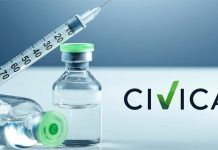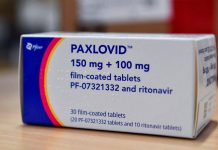Heart disease is one of the leading causes of death in the United States, according to Healthline. The U.S. Centers for Disease Control and Prevention (CDC) says 1 in every 4 deaths in the United States is due to heart disease, which contributes to more than 610,000 deaths from heart disease each year.
There are many medications available for the treatment of heart disease. Your doctor or cardiologist will prescribe a specific medication or a combination of medications to manage your heart disease. You should understand your heart medications, be compliant with your medications, and follow all instructions. There are generic heart medications available; you can check with your doctor whether you can switch to them.
Usually, generic heart medications cost you less money than their brand-name counterparts. However, some people are skeptical about the quality, safety, and efficacy of generic drugs.
Under federal law, generic heart medications are a copy of their brand-name counterparts and contain the same active ingredients as the brand-name drug. By law, generics should be identical in strength, dosage form, and administration, and meet the same standards for identity, strength, purity, and quality.
In fact, generic heart drugs are made by the same rules the FDA has set for brand-name drugs. An analysis of head-to-head comparisons of generic and brand-name heart drugs shows no cause for concern, according to Harvard Medical School.
Heart Medications and Their Generic Names
Some of the most common heart medications people with heart disease are given by their doctors include:
- ACE Inhibitors: Angiotensin-Converting Enzyme (ACE) inhibitors dilate the blood vessels to lower your blood pressure and make it easier for your heart to pump blood. Common ACE inhibitors include benazepril, captopril, enalapril, lisinopril, moexipril, perindopril, and quinapril.
- Angiotensin II Receptor Blockers (ARBs): These medications are used to lower blood pressure in people with heart failure. ARBs dilate your blood vessels so blood can flow through your body more easily. Commonly advised ARBs include azilsartan, candesartan, eprosartan, irbesartan, telmisartan, valsartan, losartan, and olmesartan.
- Aldosterone Inhibitors: These drugs belong to the class of potassium-sparing diuretics that reduce swelling and water retention caused by heart disease. Generic eplerenone and generic spironolactone are commonly prescribed aldosterone inhibitors.
- Diuretics: Also called water pills, diuretics help your kidneys remove excess water and salt, making it easier for your heart to pump blood. Diuretics also treat high blood pressure and edema (swelling) caused by heart failure. Common diuretics include chlorthalidone, hydrochlorothiazide, furosemide, torsemide, among others.
- Beta-Blockers: These drugs block the effects of adrenaline or epinephrine thereby making the heart work better. These meds are also advised for high blood pressure. Generic metoprolol is one of the most widely used hypertension and heart medications. Other beta-blockers include generic atenolol, bisoprolol, carvedilol, and propranolol.
- Calcium Channel Blockers (CCBs): These drugs treat angina (chest pain) caused by heart disease and high blood pressure. They help relax blood vessels and increase blood and oxygen to your heart. Among all CCBs, generic amlodipine is commonly used. Others include generic nifedipine, nicardipine, diltiazem and verapamil.
- Cholesterol-Lowering Drugs: High blood cholesterol causes atherosclerosis that could put a strain on your heart, increasing your risk of having a heart attack. Cholesterol-lowering drugs include statins, such as generic atorvastatin and generic rosuvastatin.
- Digoxin: Sold under the brand name Lanoxin, digoxin is one of the common generic heart medications. More often than not, it is used for atrial fibrillation, atrial flutter, and heart failure.
- Warfarin: Warfarin is available under the brand name Coumadin, which is an anticoagulant. It is commonly used to treat blood clots in people with heart disease, atrial fibrillation, and artificial heart valves.
- Clopidogrel: It is available under the brand name Plavix. It is an antiplatelet medication that reduces the risk of heart disease and stroke in people with high risk.
All the abovementioned heart medications are available in generics, except losartan and valsartan, according to Harvard Medical School.























